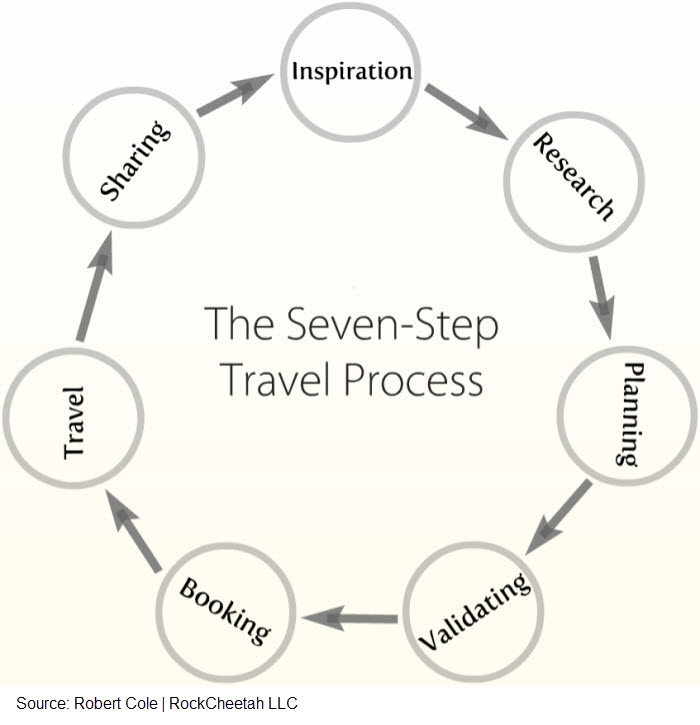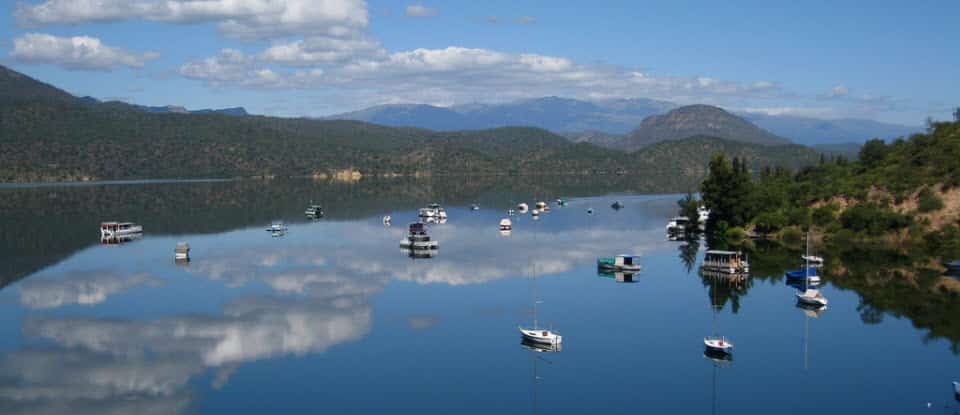With their dominant share of web search and the massive reach of its advertising network, some fear Google is a 150 million pound (or at least unique visitor) gorilla that can do anything it wants… That is partially true – Google could try to monopolize travel by crushing competitors and squeezing artificially high margins out of consumers. Two things will prevent Google from taking this hostile approach:

Google has about as many options for its travel strategy as this Rubik's Cube
- Google lives by a “Don’t be evil” motto. If Google’s strategy was retail domination, groups like Amazon and eBay would have been targeted long ago. Google’s mission is to make the web more useful and democratize access to information. Google likes other groups spending lots of time and money creating great content. This lets Google focus its time and resources on technology to source, organize and present that information.
- Attempting to monopolize a highly fragmented and global industry like travel is much less profitable than democratizing travel and letting all those entities advertise and promote themselves to the world, using Google’s tools. The travel industry is an important contributor to Google’s advertising coffers; they do not want to risk disrupting that revenue stream – they want to grow it.
As I discussed in a previous post Why Google Will Radically Democratize Online Travel, Google already possesses an impressive variety of technologies that can serve as the foundation for revolutionizing how consumers research and book travel. Additionally, given Google’s mobile strategy, they can also impact how travelers will interact with their destination once they arrive.
Conspiracy theorists can stop reading now – the opportunity for Google to radically democratize travel has nothing to do with integrating all of its modular technologies to create a self-contained uber-travel site that eradicates the competitive online travel company landscape. This is also not about creating the killer travel application – I’ll save my thoughts on that for a later time. This is all about how Google can provide tools to improve the online travel experience by presenting more useful information through a simplified process. The way they can accomplish this is by providing tools that allow travel suppliers, destinations and online travel sites to organize information so it is easier to share and present.
Google wants to increase commerce and competition – those are the two key components that support Google’s advertising revenue streams – having more organizations chasing a growing number of buyers produces greater ad sales volume at higher margins.
Increasing commerce will be Google’s foremost objective – much of the travel industry is challenged with low conversion rates – lots of looks, but too few bookings. When Forrester’s Henry Harteveldt observed “travelers are so angry with poor online travel experiences they’re approaching a breaking point” a big red flag should have started flying at every travel supplier, destination, online travel company and traditional travel agency with a web presence (ahem, that’s the whole industry folks…)
The best way to look at this is not to focus on the tools, but on the travelers and the process they follow through the full end-to-end travel experience. The seven phases of travel are inspiration, research, planning, validating, booking, traveling and sharing. They normally fall in that order, but in many situations phases may blend and influence each other; in others, a phase may be skipped or occur out of sequence. Travel is a highly complex industry and one size definitely does not fit all.

Google has existing tools that provide additional value for most phases of the online travel experience
Google is in an excellent position to help the industry improve several phases of the travel process and profit handsomely in the process. This is not purely a search oriented issue, although search is an important component. It also includes other steps that lead to a sale and all those that follow a trip when travelers share valuable insights with their social networks. Mobile technologies can also play a much larger role in stimulating commerce through geo-centric and context sensitive advertising during the trip.
The opportunities do not exist solely on the demand side. To spur supply side competition, Google can provide enhanced tools that will help suppliers, destinations and online travel sellers more efficiently market their products. This would assist independent properties, small hotel groups, representation firms and global chains; low cost carriers, regional airlines or global airline alliances. Similarly, small and emerging destinations, plus the attractions and destination services that differentiate them, would be empowered to level the playing field against the major tourist destinations.
So what aspect of the travel process could Google choose to improve first? That is difficult to say – they have an opportunity to address a number of areas that require attention. To illustrate the vast opportunities available, I’ll dedicate the next several posts to look at Google’s current arsenal of tools, align them with respective phases of the travel process, and look at opportunities where they can take each phase from there. While Google’s ultimate play in travel could potentially be very large and disruptive, a la Google Wave (I’ll talk about that in a future post,) it is more likely that they will identify and focus on specific phases of the seven-step travel process where they can attain their goal of attaining 10x improvements.
By the way, for those paranoid conspiracy theorists who continued reading this post – in fear that I might be trying to hide something from them – here it is: I don’t think Google’s ultimate plan is to dominate the Earth. Google Labs already has a Sky Map for Android Phones and detailed maps of Mars’ surface… It appears their real agenda may actually be celestial domination… The good news is that it probably won’t happen until Web 73.0. 😯
[Note: This is the second in a series of eight articles contemplating how Google can help revolutionize online travel by improving the organization and accessibility of tourism related information. The radical democratization of travel information, a process Google has initiated through its search and advertising technologies, can increase commerce throughout the travel industry by fostering fair competition among hotels, airlines, destinations, attractions, and online travel companies – regardless of size or geography. – RKC]
Background:
Why Google Will Radically Democratize Online Travel
Other articles in the series:
How Google Can Help Facilitate Travel Inspiration (part 2)
How Google Can Help Enhance Online Travel Research (part 3)
How Google Can Help Simplify Online Travel Planning (part 4)




